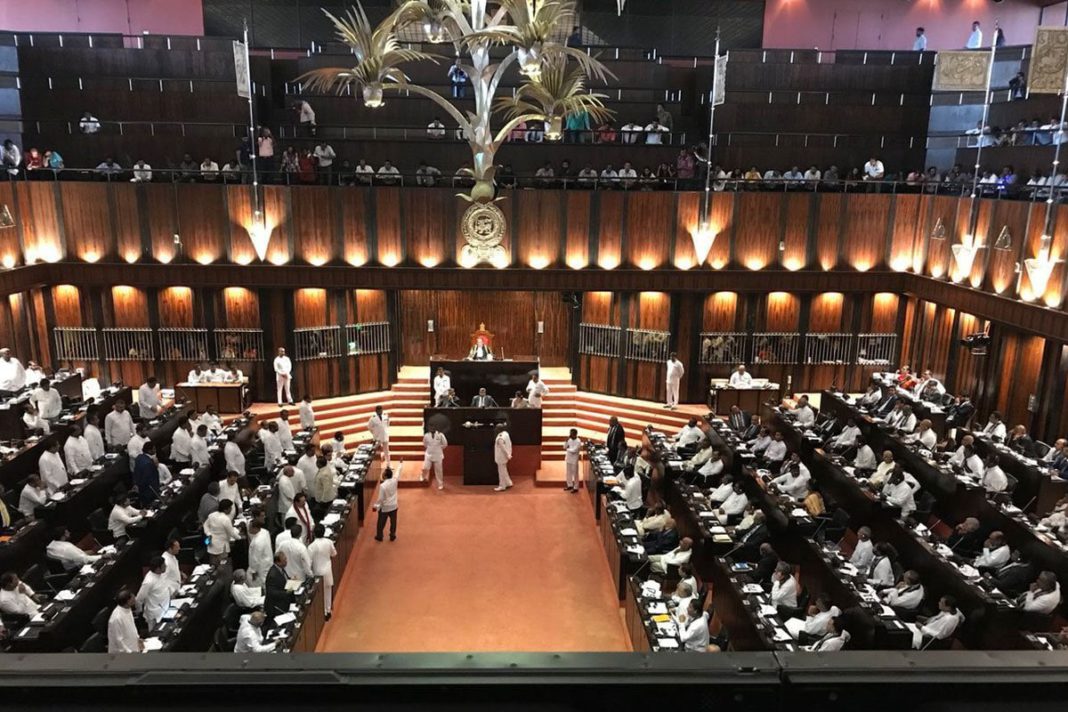The amendments proposed by the Attorney General for the Inland Revenue (Amendment) Bill should be included at the committee stage before the Bill is passed, Speaker Mahinda Yapa Abeywardena told the parliament today (Nov. 17).
He stated this conveying the determination of the Supreme Court on the petition challenging the Inland Revenue (Amendment) Bill.
An application challenging the Inland Revenue (Amendment) Draft Bill was filed before the Supreme Court on Oct. 27.
A general manager of an apparel factory by the name U.S. Ranaweera, residing in Homagama area, had put forward the said application, naming the Attorney General as its respondent.
The draft bill was published in the government gazette on October 12. The special gazette was issued by the Minister of Finance, Economic Stabilization and National Policies to amend the Inland Revenue Act, No.24 of 2017.
According to the draft proposal, it was decided to impose taxes on people based on different income-earning criteria.
If passed in parliament, the proposed bill will revise a number of levies and will further empower the Inland Revenue Department as the primary agent for collecting taxes and dealing with issues arising with taxes on behalf of the government.
The petitioner alleges that the government has reduced the minimum taxable income of a person from Rs. 250,000 to Rs. 100,000, placing a heavy tax burden on the general public already hit hard by the ongoing economic crisis.
The new income tax proposals discourage many sectors in the country including exports, local industries and developmental activities, the petitioner pointed out.
The petitioner alleged that the proposed income tax changes in the Inland Revenue (Amendment) Draft Bill are a serious violation of the government’s obligations to guarantee social security and ensure public welfare, pursuant to the Constitution.
The petitioner, noting that Articles 14, 16, 22, 29, 36 and 39 are unconstitutional, requested the Supreme Court to determine that the draft bill should be passed by a two-thirds majority in the parliament and a public referendum.


